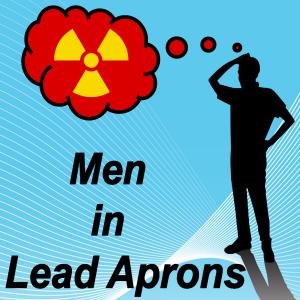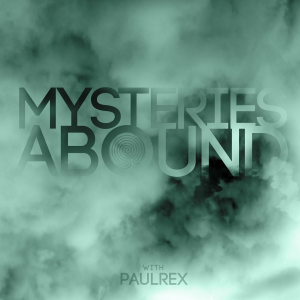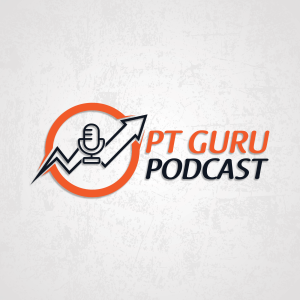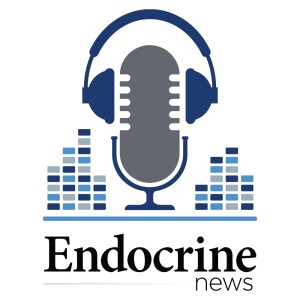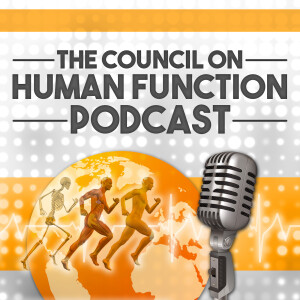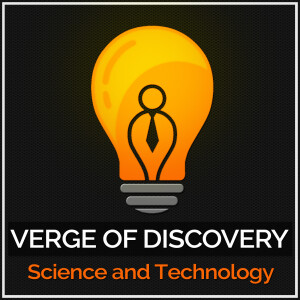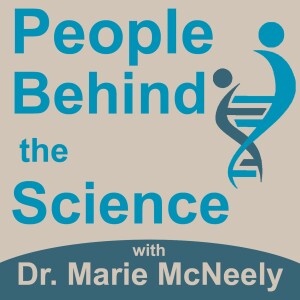

People Behind the Science Podcast Stories from Scientists about Science, Life, Research, and Science Careers
https://peoplebehindthescience.libsyn.com/rssEpisode List

824: Looking Beneath the Surface to Study the Science of Water Movement, Distribution, and Quality: Dr. Tess Russo
Dr. Tess Russo is an Assistant Professor in the Department of Geosciences at The Pennsylvania State University. Tess is a hydrologist which means she studies water. Her research examines how water moves, how much of it there is in the world, and how the actions of humans change how water moves in the world. Tess has been spending a lot of time doing home renovations. When she's not working on her house, she likes to visit family and travel. She received her PhD in Earth and Planetary Sciences from the University of California, Santa Cruz and completed a postdoctoral fellowship at the Earth Institute at Columbia University. Her fantastic work is already getting a lot of attention. Last year, Tess was featured by the Green Sense Podcast, Scientific American, and she is a guest on an upcoming episode of Startalk Radio with the wise and wonderful Neil Degrasse Tyson. Tess is with us today to tell us all about her journey through life and science.

823: Probing Protein Dynamics from Molecular Switches to Shape-Changing Viral Particles - Dr. Ganesh Anand
Dr. Ganesh Anand is an Associate Professor of Chemistry as well as Biochemistry and Molecular Biology at The Pennsylvania State University (or Penn State University) at the University Park campus. He is also an elected Board Member of the International Society for Hydrogen/Deuterium Exchange Mass Spectrometry (HDX-MS). Research in Ganesh’s lab examines molecular switches. He wants to know how molecules interact with one another and how they switch from one state to another. These tiny molecular switches act almost like electrical switches turning on and off the functions of different molecules. He also does research on viruses and how they change shape to infect their hosts. Beyond his scientific interests, Ganesh has also been passionate about music for as long as he can remember. He takes voice lessons now and enjoys singing in choirs in his free time. He received his bachelor’s degree in pharmacy and his master’s degree in biological sciences from Birla Institute of Technology and Science in India. Next, Ganesh attended Rutgers University where he earned his PhD in biochemistry. Afterwards, he conducted postdoctoral research as a Howard Hughes Medical Institute Research Fellow at the University of California San Diego. Ganesh served on the faculty in the Department of Biological Sciences at the National University of Singapore for over a decade before accepting a faculty position at Penn State where he is today. His lab is recognized as a Waters World Center of Innovation in Hydrogen/Deuterium Exchange Mass Spectrometry. Ganesh is founding member and former Director of the Singapore National Laboratory for Mass Spectrometry (SingMass) and the former Vice President of the Singapore Society for Mass Spectrometry. In this interview, he shares more about his life and science.

822: Using Lake Sediments to Get to the Core of Key Issues in Ecology and Conservation - Dr. Jacquelyn Gill
Dr. Jacquelyn Gill is an Assistant Professor of Paleoecology and Plant Ecology at the University of Maine. Jacquelyn is a paleoecologist. She studies ecology and climate change over the past 20,000 years since the end of the ice age. This involves taking a forensics-like approach to analyzing the sediments and fossil records in lakes and bogs that give clues about past climates and landscapes. When she's not thinking about science, Jacquelyn likes to be outdoors, exploring the forest and coastline in Maine. Her indoor hobbies include a weekly trivia night, knitting, and reading. She received her Masters degree and PhD in Geography from the University of Wisconsin, Madison. Afterward she served as a the Voss Postdoctoral Fellow at Brown University before joining the faculty at the University of Maine. She was the recipient of the E. Lucy Braun Award for Excellence in Ecology, the Student Section Award for Excellent Women in Ecology, and the Cooper Award all from the Ecological Society of America. She also received the Trewarth Award for Best Student Paper, the Graduate Peer Mentor Award, and the Whitbeck Dissertator Fellowship from the University of Wisconsin, Madison. Jacquelyn is with us today to tell us all about her journey through life and science.

821: Illuminating the Quantum Physics of Ultracold Atoms - Dr. Chad Orzel
Dr. Chad Orzel is the R. Gordon Gould Associate Professor of Physics at Union College. He is also author of the popular science books How to Teach Physics to Your Dog, How to Teach Relativity to Your Dog, Eureka: Discovering Your Inner Scientist, and the soon-to-be-released book Breakfast with Einstein: The Exotic Physics of Everyday Objects. In addition, Chad regularly contributes blog articles for Forbes Magazine. Chad studies ultracold atoms to improve our understanding of atomic physics. He uses lasers to drop the temperature of samples of atoms to just millionths or billionths of a degree above absolute zero. At these very cold temperatures, the atoms move very slowly, and interesting quantum effects arise. Free time can be hard to find with two kids and a puppy at home, but Chad enjoys hanging out with his family, reading science fiction and fantasy books, and playing basketball when he has the chance. He received his B.A. in Physics from Williams College and his Ph.D. in Chemical Physics from the University of Maryland. Before joining the faculty at Union College, Chad conducted postdoctoral research in the Physics Department at Yale University. In our interview, Chad shared his experiences from his life and science.

820: Studying the Molecular Information Cells Use to Move Through Their Environments - Dr. Michelle Starz-Gaiano
Dr. Michelle Starz-Gaiano is Professor and Chair of Biological Sciences at the University of Maryland Baltimore County (UMBC). Michelle’s research uses fruit flies to examine how cells in the body go to the right place at the right time. Understanding why and how cells use their genetic information to move through the body is critical because if this movement doesn’t happen correctly, it could, for example, impact embryo development or affect how immune cells mobilize after an injury. Conversely, preventing cancer cells from moving could keep cancer from spreading to other parts of the body. Michelle often spends her free time cooking and baking. Her kitchen looks a little like a lab, and she enjoys experimenting with making different foods. Michelle and her family also like to spend time together, travel, and listen to music. She received her bachelor’s degree in biology from the Massachusetts Institute of Technology and her PhD in Developmental Genetics from New York University. Afterwards, Michelle completed a postdoctoral fellowship at Johns Hopkins School of Medicine. She joined UMBC in 2008 and has received the Donald Creighton Outstanding Faculty Member Award from the UMBC Graduate Student Association for her excellent mentorship. In our interview, she shares more about her life and science.
Create Your Podcast In Minutes
- Full-featured podcast site
- Unlimited storage and bandwidth
- Comprehensive podcast stats
- Distribute to Apple Podcasts, Spotify, and more
- Make money with your podcast
